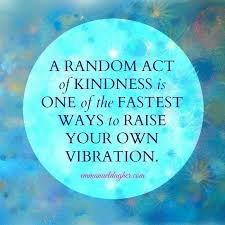10.4 Connection and Contribution
Click here to Subscribe and receive a new version in your inbox each week.
Jerry Seinfeld and I agree: We are not fans of the phrase "to be continued" at the end of a television show.
From an episode: “Don’t you hate ‘to be continued’ on TV? It's horrible when you sense the ‘to be continued’ coming. You know, you're watching the show, you're into the story, and suddenly you realize, ‘They can't make it! Timmy is still stuck in the cave! There's no way they wrap this up in five minutes!’ The whole reason you watch a TV show is because it ends. If I wanted a long, boring story with no point to it, I have my life.
Even though I didn't like it, I had to leave our last segment with a "To Be Continued." We were working our way through verses 22–30 of chapter 10 and noting the importance Jesus placed on connection: connection to God and connection to people. Let's do a quick refresh. First, let's look at the verses again.
The Setting: Jesus at the Festival of Dedication
22 At that time the Festival of the Dedication took place in Jerusalem. It was winter, 23 and Jesus was walking in the temple, in the portico of Solomon. 24 So the Jews gathered around him and said to him, “How long will you keep us in suspense? If you are the Messiah, tell us plainly.” 25 Jesus answered, “I have told you, and you do not believe. The works that I do in my Father’s name testify to me, 26 but you do not believe because you do not belong to my sheep. 27 My sheep hear my voice. I know them, and they follow me. 28 I give them eternal life, and they will never perish. No one will snatch them out of my hand. 29 My Father, in regard to what he has given me, is greater than all, and no one can snatch them out of the Father’s hand. 30 The Father and I are one.”
Connection: The Core of Jesus’ Teachings
"Connection" was central to Jesus' life and teaching. His oft-repeated words "the father and I are one" and "my sheep hear my voice and follow me” show the significance of connection - upward to his father and outward to people. His most crucial commandment echoed, "Love the Lord, your God, and love your neighbor as yourself.” He could have said, “Connect with the Father and connect with your neighbor.” Connect with your wife. Connect with your children. Connect with your boss and coworkers. The magic is not “in me” or “in them” but in the “connection.”
Connection to God: Silence as the Pathway
In the last segment, we discussed strengthening our connection with God through the method Jesus demonstrated: silence. He didn't talk much about it; he lived it. We see it in the times he slipped away to be alone and the nights he spent in prayer. A "new teaching or direction" for Jesus seems to follow each time. Silence was the "secret sauce" that created the connection, the oneness, with the father. It's the same for us.
Jesus taught us "how to believe," not just what to believe. In Lost Christianity, the late Jacob Needleman raises the question of whether we have “been too much concerned with religion about Jesus, too little with the religion of Jesus.”
"My Sheep Hear My Voice.”
What about my "outward connection" to the people in my life? Jesus taught us that we should weep with them, celebrate with them, make peace with them, ask for forgiveness, give forgiveness, and lay down our life. All his teachings revolved around nourishing connections at all costs. But why? Was it so that I could be a nice person, a good Christian, and go to heaven when I die? No, Jesus was ahead of the science on this and knew that it was best for me and us as a people.
Connection to Others: Practicing Generosity and Contribution
Humans are biologically wired to connect with others, and our need for social connection is deep within us. To thrive, we need face-to-face interaction. According to the Canadian Mental Health Association, “Research shows us that loneliness is on the rise and that a lack of human connection can be more harmful to your health than obesity, smoking, and high blood pressure. Social connection can lower anxiety and depression, help us regulate our emotions, lead to higher self-esteem and empathy, and improve our immune systems. We put our health at risk by neglecting our need to connect.”
“The natural condition of life for humans is one of reciprocal rootedness in others. Assurance of others being for us is the condition of stable, healthy living. There are many ways this could be present in individual cases, but it must be there. If it is not, we are walking wounded, our life, more or less, a shambles, until we die.”
Strong social networks and supportive relationships can contribute to longevity. The scientists at UC Berkeley say, “Because social connection is so hard-wired into human behavior, it makes sense that our relationships (or lack thereof) significantly influence our well-being. Connections can be as important to physical and mental health as exercise and healthy eating. Research has shown that the psychological and physical health benefits of social contact are so great that they can even outweigh the harmful effects of other risk factors and boost life expectancy.”
I'm not sure if he was aware of the health benefits, but Jesus knew that "connecting with others" was a pivotal component to a good life, what he would call an abundant life, even eternal life (“Zoe”). It was the same "life" that was in Jesus. Remember, John said, "In him was life, and the life was the light of all people.” The life of Jesus was the religion of Jesus, and the religion of Jesus was the life of Jesus. Watching him live his life should give me insight into living mine.
A note to my grandchildren and their children: As I review my life, I have to ask myself, "Whose voice do I hear, and who hears my voice?” If I’m soul-deep honest with myself, while I have been good at making acquaintances, I have not been good at making deeply connected friends. Whether it's a result of childhood emotional trauma, insecurities, or a deeply seated case of self-centeredness, I don’t know. But beyond Karen, no one knows the lower levels of my heart, nor do I know theirs. Who knows? This may be common in today's culture, but it doesn't seem healthy according to the above.
Living Out the Religion of Jesus: Lessons for Today
While contemplating this, I heard, “Notice the difference in the feeling within your body when you approach somebody based on what you can do for them versus what they can do for you. Feel the difference. Feel the vibration of generosity. Practice this with each encounter.” This reminded me of a phrase I heard in sales training about 30 years ago, "coming from contribution.” In that context, it meant approaching each client to help them, helping them reach their goals, and contributing to them.
Now, looking back at Jesus’ life, that's precisely what he did:
When Nicodemus approached him at night, he thought, "How can I help him connect with the Father rather than simply keep the rules?"
When he first saw the woman at the well, he must have thought, "How can I help her see that the truth is not in the temple or on the mountain but ready to bubble up from within herself?”
When he saw the 5000 hungry people, the cripple man by the pool at Bethsaida, the adulterous woman, the man born blind, and while teaching on Solomons's porch at the temple, he must have thought to himself, "What can I do to enhance the lives of those immediately in front of me?”
Can I live my life the same way? Can I approach each encounter thinking, "How can I enhance the life of the person in front of me?” Shouldn’t I continually “come from contribution?” Of course! That’s the genius of Jesus' teaching. It always comes with handles, something you can grab hold of and try today.
Let's conclude by consulting Google AI on this topic: Coming from a place of contribution and value, without expectations of the outcome or a return, brings so much purpose and joy to our lives!
The core idea is to contribute freely, not motivated by the desire to receive something back in return.
The joy comes from giving itself, not external validation or outcome.
Contributing to something larger than oneself can provide a strong feeling of meaning and direction in life.
Example situations:
Volunteering time at a local shelter without expecting recognition.
Offering support to a friend going through a tough time without seeking anything in return.
Creating art or content simply for the love of expression, not to gain followers or fame.
A Random and Baffling Question
Here's a question that has been baffling me for weeks. Why did John go out of his way to say that Jesus was "on Solomons portico" and “it was winter?” I don't know for sure, but it occurred to me that Solomon was known for his wisdom and had written the wisdom literature (Proverbs, Ecclesiastes, and Song of Songs) that the Jews had studied. When John opened his story with "the word became flesh,” he could've said, "wisdom became flesh.” Could he be saying that one greater than Solomon is here, the very wisdom of God?
What about "it was winter?” Was it so John could emphasize that Winter is the darkest season, "And the light shines in the darkness, and the darkness did not comprehend it?”
With that in mind, in our next segment, we’ll examine the reaction of Jesus' listeners to this teaching.
My Key Takeaways:
Jesus emphasized a profound connection with God (“The Father and I are one”) and with others (“My sheep hear my voice”). This dual connection is essential to a fulfilling life.
Jesus demonstrated the importance of silence and solitude, showing that these practices deepen our relationship with God.
Jesus modeled a life of contribution, approaching each encounter with the question, “How can I enhance the life of the person in front of me?”
The Benefits of Social Connection: Science supports Jesus’ teachings on the need for connection, showing that meaningful relationships can improve mental and physical health.










